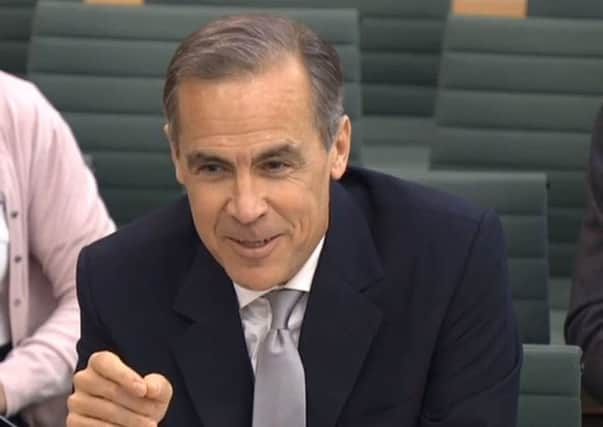Martin Flanagan: Boe tries to tell it like it is
This article contains affiliate links. We may earn a small commission on items purchased through this article, but that does not affect our editorial judgement.


Key Bank of England staff told MPs yesterday that the central bank’s forecasting had improved but that it was still unlikely to be able to predict the next financial crisis or recession. Nothing like getting your mistakes in early.
The Bank was blindsided by the banking crisis of 2007-8, and failed to anticipate the subsequent Great Recession, but the same could be said of central banks in the Roaring Twenties ahead of the Wall Street Crash and Great Depression of the 1930s. In terms of policymakers, what goes around, goes around.
Advertisement
Hide AdAdvertisement
Hide AdOne of the Bank’s monetary policy committee members told the Treasury select committee baldly: “Our models are just not that good.”
The Bank does a decent job given the imponderables (have fan chart, will travel), but realism is called for in what can be guaranteed amidst a welter of often contradictory data was the thrust of what they told MPs. Quite right, too. It wasn’t just central bankers who failed to notice that banks were dangerously over-borrowed ahead of the financial crisis. Politicians, most City gurus and the groves of academe also neglected to cry wolf as the leverage tide rose against the sea walls.
It was also not just the banks. Consumers were living on tick, as were many governments – the latter shown to be swimming naked in flaky sovereign debt when the tide went out in 2011-12.
Andy Haldane, the BoE’s chief economist, held his hand up to MPs on the committee for the Bank overplaying the economic pessimism in the immediate aftermath of June’s Brexit vote, when the economy has performed resiliently since then.
But, with some justification, he said this was not on the same scale as the policymaking lacunae in the lead-up to the financial crash.
Anyway, the axiom that the BoE is not infallible will help stand governor Mark Carney and colleagues in good stead when things inevitably go awry again.
Bank results trumped by events
HSBC has got the banks’ reporting season off to an inauspicious start, with a 62 per cent slide in 2016 profits. Scots-born chairman Douglas Flint says political instability will continue to trail a cloud over the industry. Who on earth could he have in mind?
